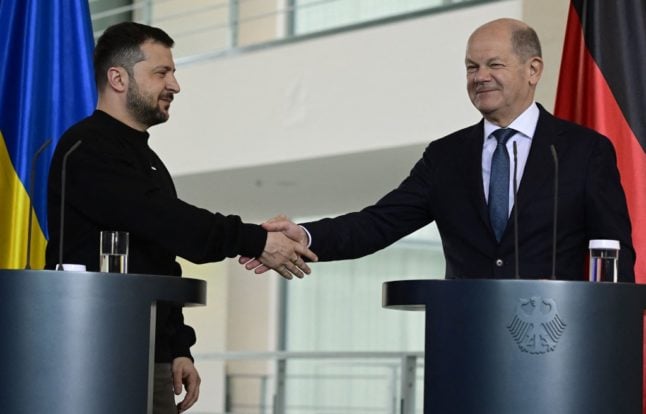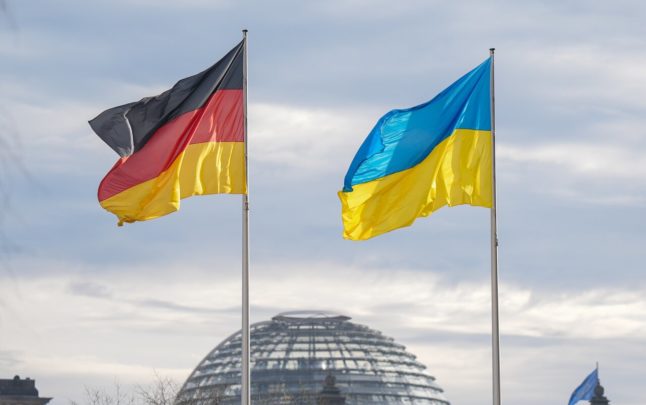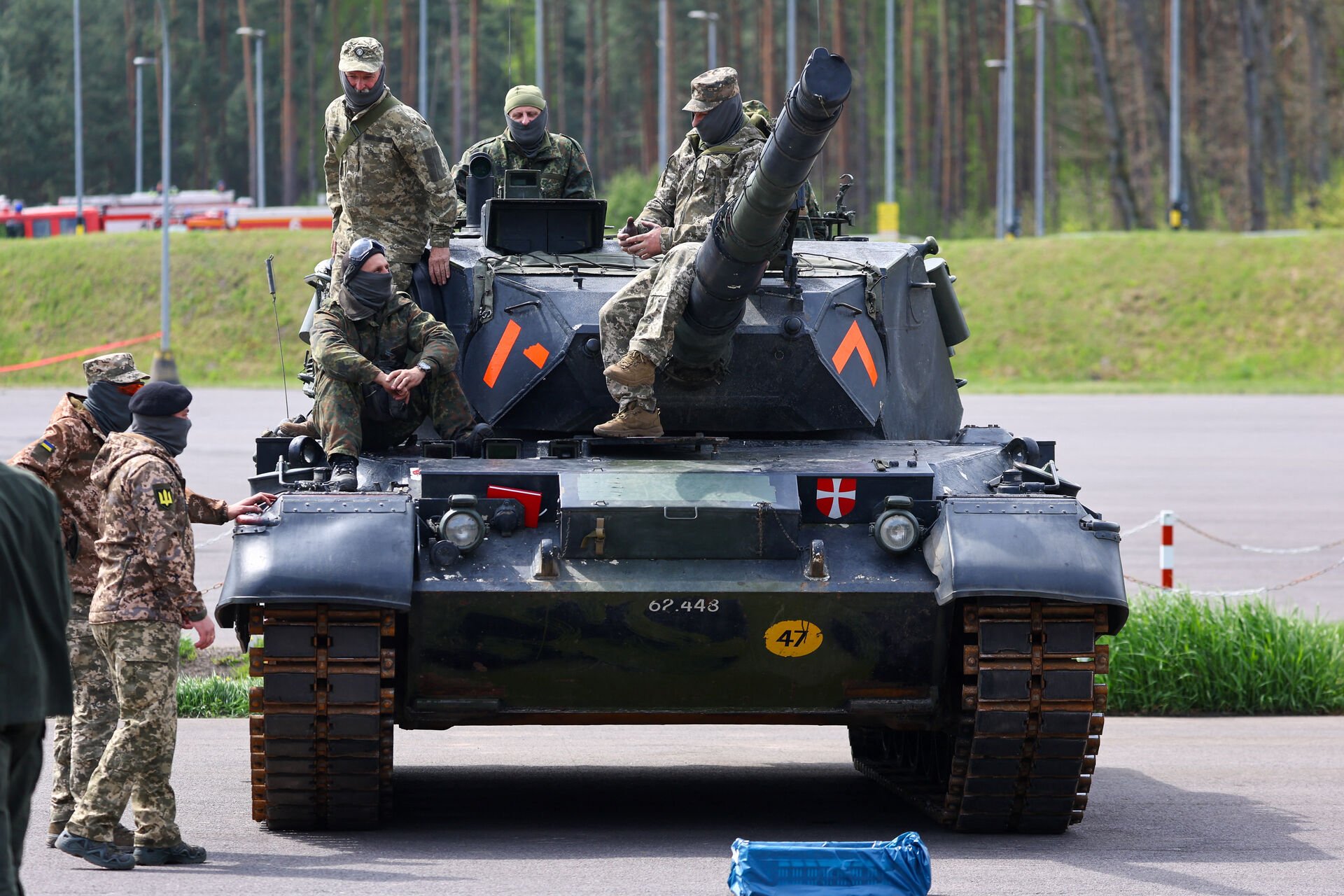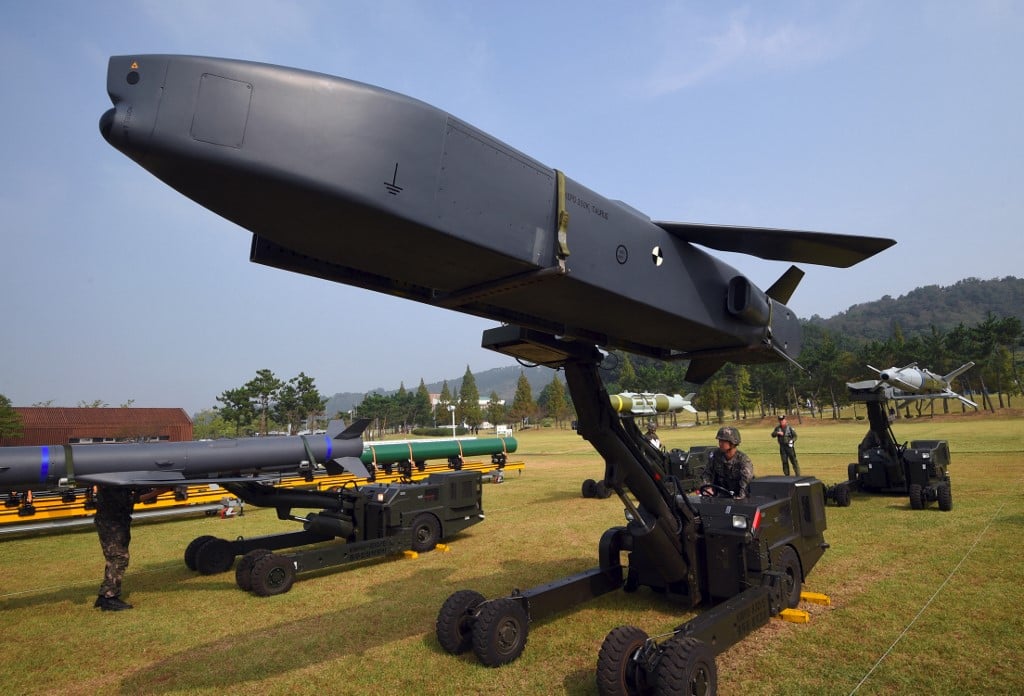Berlin unveiled a new military package for Kyiv worth 2.7 billion euros ($3 billion), its biggest yet for Ukraine, just before Zelensky’s first visit to Germany since Russia’s invasion.
“In the most challenging time in the modern history of Ukraine, Germany proved to be our true friend and reliable ally, which stands decisively side-by-side with the Ukrainian people in the struggle to defend freedom and democratic values,” Zelensky wrote in the guestbook at the German president’s official residence.
He also thanked Chancellor Olaf Scholz for Germany’s “powerful support” in the form of the armaments package, saying “everything in this security package will significantly strengthen our defence”.
“Now is the time for us to determine the end of this war this year. This year, we can make the aggressor’s defeat irreversible,” he said.
Ukrainian forces have been training troops and stockpiling Western-supplied munitions and hardware that analysts say will be key to reclaiming territory captured by Russia.
Once accused of reticence in supplying military gear to Ukraine, Germany has since become the second-biggest contributor of tanks, rockets and anti-missile systems to the country, after the United States.
Scholz on Sunday reiterated Berlin’s firm backing, telling Zelensky directly: “We will support you for as long as it is necessary.”
Zelensky said he would urge Scholz to support Ukraine’s bid for fighter jet deliveries, though he did not specify if he was seeking aircraft directly from Germany.
Together with Scholz, Zelensky will head later Sunday to the western German city of Aachen, which this year is awarding him and the Ukrainian people the Charlemagne prize — an honour awarded for efforts to foster European unity.
European Commission President Ursula von der Leyen and Polish Prime Minister Mateusz Morawiecki are also due to attend the ceremony in Aachen — giving Zelensky the opportunity for direct talks ahead of an EU summit in Reykjavik on Tuesday, followed by the G7 gathering of world leaders in Hiroshima, Japan.
‘Historical shame’
Zelensky’s visit to Germany followed talks in Rome on Saturday with Pope Francis and Italian leaders, and rounds off over a year of choppy relations with Berlin.
Early on in the conflict, Kyiv had accused Germany of being too accommodating to Russian President Vladimir Putin, while Berlin’s reliance on Russian energy had proved tricky.
Kyiv had also snubbed a visit by German President Frank-Walter Steinmeier in the weeks following the invasion, which in turn delayed Scholz’s first trip to the war-torn country.
Both Steinmeier and Scholz have since visited Ukraine.
In a clear show of its backing for Kyiv, Berlin on Saturday said it would send Ukraine more firing units and launchers for the Iris-T anti-missile system, 30 additional Leopard 1 tanks, more than 100 armoured combat vehicles and over 200 surveillance drones.
Mykhaylo Podolyak, an adviser to Zelensky, hailed the announcement, saying it indicated that Russia was “bound to lose and sit on the bench of historical shame”.
As Kyiv prepares its offensive to retake ground in the eastern Donetsk and Lugansk regions, as well as the Kherson and Zaporizhzhia regions in the south, Germany’s continued military backing will likely prove vital.
High-tech German-made Leopard 2A6 tanks sought by Kyiv have already been put to use at the frontlines, and the medium-range Iris-T missile defence system from Germany is also helping to bolster Ukraine’s protection against Russian strikes.
‘Inaction’
On the front line, Russia said Sunday that two of its military commanders had been killed in combat near the flashpoint town of Bakhmut.
In a rare announcement of losses on the battlefield, the Russian defence ministry said in a statement that the commander of the 4th motorised rifle brigade, Vyacheslav Makarov, and Yevgeny Brovko, deputy commander of the Army Corps for military-political work, had been killed in fighting in eastern Ukraine.
The head of Russia’s private Wagner mercenary group Yevgeny Prigozhin again accused the Russian army of inaction around Bakhmut.
In a post published by his press service, Prigozhin said the “airborne forces” of not backing his men as claimed by the defence ministry.
“I didn’t see them… I don’t know where they are and who they are helping” he charged.
Elsewhere, Moscow said Russian forces had struck Western arm depots and Ukrainian troops in the western city of Ternopil and the eastern town of Petropavlivka.





 Please whitelist us to continue reading.
Please whitelist us to continue reading.
Member comments